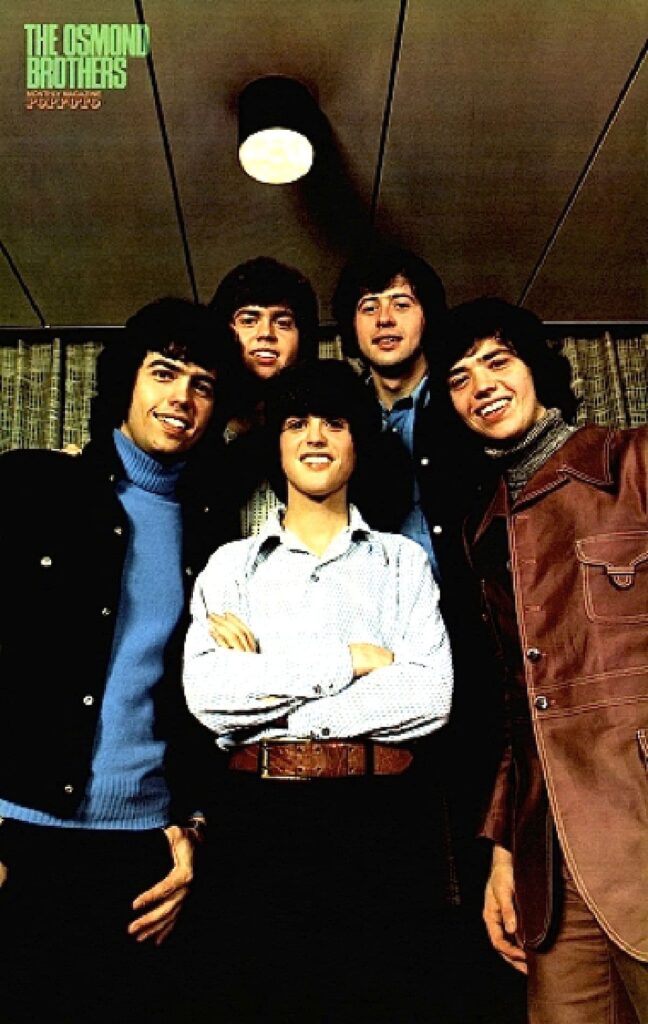
When the Bubblegum Burst: The Gritty Swan Song of a Family’s Rock Dream
A desperate final plea for enduring love, wrapped in the hard rock edge of a group determined to shatter their teen idol past.
There are moments in music history that perfectly encapsulate a cultural shift, a brave, perhaps foolhardy, attempt by an artist to evolve beyond the comfortable image that brought them fame. For the beloved family group, The Osmonds, that moment arrived with the 1976 release of the single, “It’ll Be Me”. By this time, the “Osmondmania” of the early ’70s—the saccharine pop hits like “One Bad Apple” and the bubblegum solo success of Donny Osmond—was largely in the rearview mirror. The elder brothers, having already surprised the music world with the heavy, experimental rock of “Crazy Horses” (1972) and the concept album “The Plan” (1973), were making a final, passionate push to be taken seriously as a legitimate rock and roll outfit, not just a clean-cut television variety act.
“It’ll Be Me” was a key track from their 1976 album, “Brainstorm”, a project that found the group, particularly the songwriting core of Alan, Wayne, and lead vocalist Merrill Osmond, digging deep into a more sophisticated, hard-edged sound. However, the commercial landscape had changed, and the music industry is notoriously unforgiving of idols who dare to grow up. The song’s chart performance reflected this shift. Released in the spring of 1976, “It’ll Be Me” failed to penetrate the Billboard Hot 100 in the United States, marking a poignant moment as the golden age of The Osmonds’ chart dominance began to fade. It was a stunning lack of airplay for a group that, just a few years prior, could barely release a song that didn’t shoot straight into the Top 10. The single’s fate served as a somber bell tolling the end of their pop hit era, even as their variety show, Donny & Marie, cemented their status on television.
The story behind the song is a reflection of the deep-seated desire by the brothers to control their own narrative and musical direction. Penned by Alan, Wayne, and Merrill Osmond, the track’s meaning is less about the fluffy puppy love of their earlier incarnation and more about an adult, almost desperate, declaration of eternal, faithful commitment. The lyrics, driven by Merrill’s powerful and often overlooked rock tenor, are a plea to a lover not to give up on their relationship, to look past any flaws or difficulties, and to know that when all is said and done—when the fleeting passions of others fade—it is he who will remain steadfast: “Well, you may get the notion that there’s nothing to hold on to… But you’ll see me through, believe me, it’ll be me.”
For those of us who grew up with The Osmonds, listening to “It’ll Be Me” today is a deeply nostalgic and reflective experience. It takes us back to a time when the pressure on teen idols to maintain an image was immense, and this track sounds like the release of that pressure—a powerful, soaring, guitar-driven number that wouldn’t have sounded out of place alongside bands like Boston or Styx. It is the sound of The Osmonds shedding the last vestiges of their ‘safe’ image, even if the public and radio programmers weren’t quite ready to follow them into this harder, more mature territory. The energy in the song is raw, the harmony arrangements are tight, and Merrill’s vocal delivery is brimming with the passion of a performer who knows he’s making a final, definitive statement. It wasn’t their commercial zenith, but for true fans, “It’ll Be Me” is arguably one of The Osmonds‘ most sincere and compelling musical testaments—a gritty swan song of their rock aspirations.